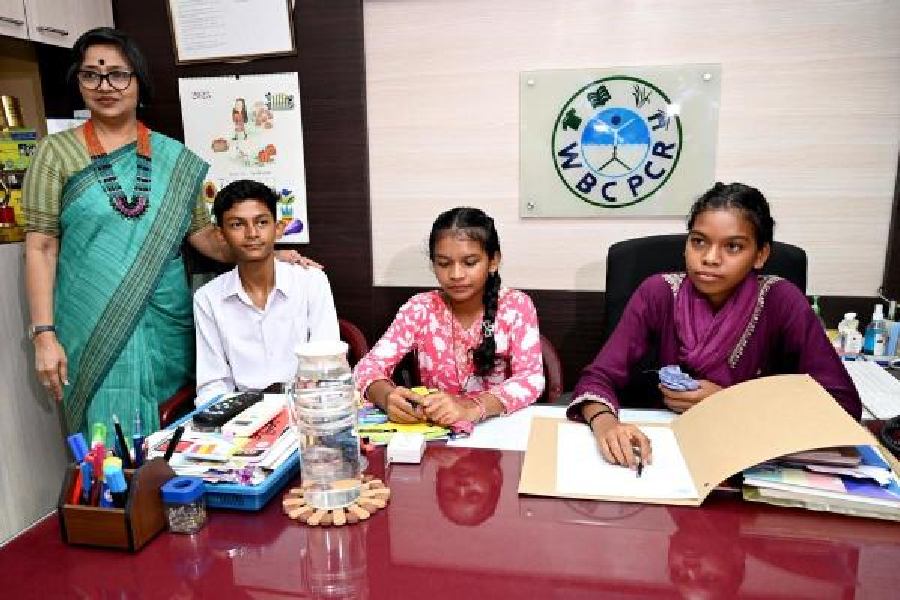Going to school means walking for long distances through fields and deserted roads, said three students from the tea gardens of Jalpaiguri.
Rishika Sabar, 16, Khushbu Munda, 15, and Sasikant Gowala, 15, who live in the gardens with either one or both parents working as labourers, represent a section of children growing up vulnerable conditions, as many gardens face indefinite closure.
Rishika from Ghatia Tea Garden in Nagrakata, Jalpaiguri, served as the chairperson of the West Bengal Commission for Protection of Child Rights (WBCPCR) on Wednesday.
Khushbu from Chilgu Lines of Ghatia Tea Garden, and Sasikant, from Debpara Tea Garden, served as members of the panel. They brought to the table a charter of demands that emerged from struggles that many like them face daily.
The demands will be drafted and sent to the women and child development and social welfare department.
The commission observed World Day Against Trafficking in Persons on July 30.
“Students feel unsafe when they return from tuition after sundown. There should be more street lights,” said Rishika, a Class XI student.
Rishika is a committed volunteer in social activities and has championed child rights in her capacity as a member of the village-level child protection committee.
“Last year, a Class VIII girl eloped with a boy. With the help of an NGO and the local administration, we brought her back,” said Rishika.
Khusbu walks for 6km to reach school. “I have to walk because we don’t get buses. It is risky, and some students miss classes for this,” she said.
Dropping out of school is another reality, said Rishika.
“After working for eight hours, a tea garden labourer gets ₹250, which is not inadequate to manage a household. So, the kids start working as well,” she told The Telegraph.
“We chose children from vulnerable areas and they shared their problems. Many of them do not have identity documents, which makes it difficult to access government schemes,” said Tulika Das, chairperson, WBCPCR.
“At present, many tea gardens have shut down in Jalpaiguri and Alipurduar. Not that all workers have left, many are still there,” she said.










